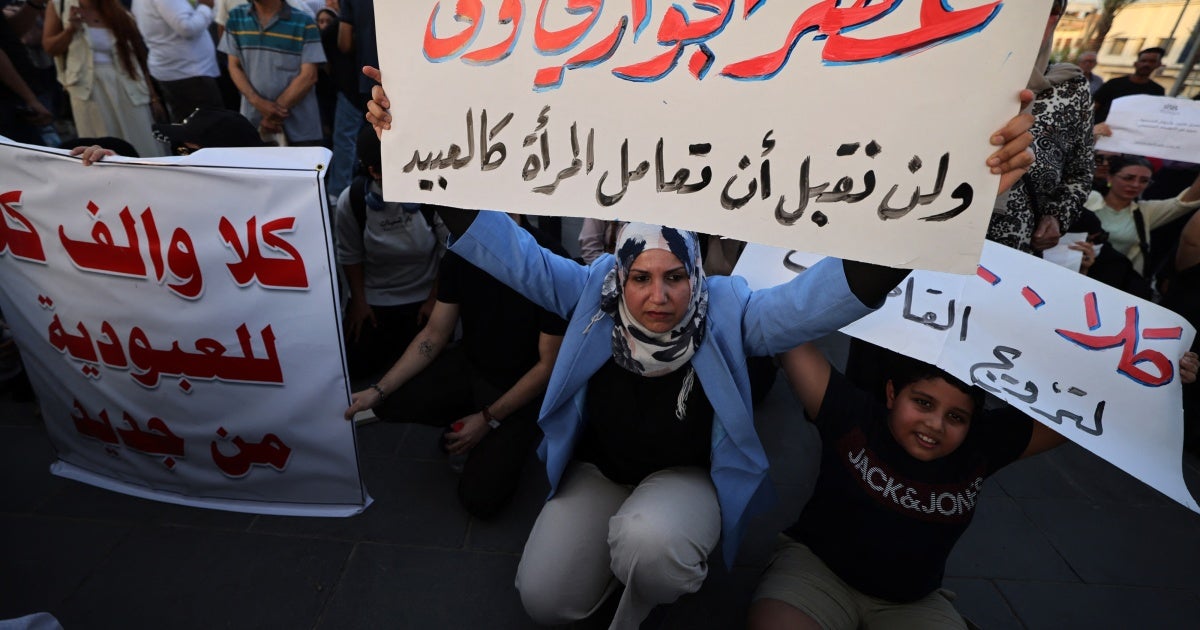(Beirut) – Iraq’s parliament is moving forward an amendment to the country’s Personal Status Law that would allow Iraqi religious authorities, rather than state law, to govern marriage and inheritance matters at the expense of fundamental rights, Human Rights Watch said today. The Iraqi parliament, which completed its first reading of the bill on August 4, 2023, will have two more readings of the bill and a debate before deciding whether to vote it into law.
If passed, the amendment would have disastrous effects on women’s and girls’ rights guaranteed under international law by allowing marriage for girls as young as 9, undermining the principle of equality under Iraqi law, and removing protections for women regarding divorce and inheritance. Child marriage puts girls at increased risk of sexual and physical violence, adverse physical and mental health consequences, and being denied access to education and employment.
“The Iraqi parliament’s passage of this bill would be a devastating step backward for Iraqi women and girls and the rights they have fought hard to enshrine in law,” said Sarah Sanbar, Iraq researcher at Human Rights Watch. “Formally legalizing child marriage would rob countless girls of their futures and well-being. Girls belong in school and on the playground, not in a wedding dress.”
The draft amendment would legalize, rather than try to reverse, Iraq’s significant and growing child marriage problem, Human Rights Watch said.
Iraqi rights groups and activists have taken to the streets to protest the amendment, and a group of more than 15 women parliament members from diverse parties have come together to oppose its passage. Parliament proposed similar amendments to the Personal Status Law in 2014 and again in 2017, both of which failed to pass.
Under the draft amendment, couples concluding a marriage contract could choose whether the provisions of the Personal Status Law or the provisions of specific Islamic schools of jurisprudence would apply. If couples are from different sects, the school followed by the husband’s sect would apply.
This arrangement would effectively establish separate legal regimes with different rights accorded to different sects. It would further enshrine sectarianism in Iraq, undermining the right to legal equality for all Iraqis found in article 14 of the constitution and international human rights law.
For instance, the Jaafari school of law, which many Shia Muslims in Iraq follow, allows for girls as young as 9 and boys as young as 15 to be married. The Personal Status Law sets the legal age for marriage at 18, or 15 with a judge’s permission and depending on the child’s “maturity and physical capacity,” which already contravenes international legal standards and best practices.
The draft amendment would also authenticate unregistered marriages, which are conducted by religious leaders but not registered with personal status courts and are illegal under the current Personal Status Law. The amendment would also remove criminal punishments for men entering into these marriages and allow religious leaders, rather than the courts, to finalize marriages.
Unregistered marriages are already a loophole enabling child marriage in Iraq, where child marriage rates have been rising over the last 20 years, a March 2024 report by Human Rights Watch found. The United Nations Children’s Fund (UNICEF) reported that 28 percent of girls in Iraq are married before age 18. According to the UN Assistance Mission in Iraq, 22 percent of unregistered marriages involved girls under age 14.
Unregistered marriages also have extremely harmful effects on women and girls’ ability to obtain government services, register their children’s birth, and claim their rights, Human Rights Watch said. Without a civil marriage certificate, women and girls are unable to give birth in hospitals, itself an unjust obstruction to health care, and are forced to give birth at home with limited access to emergency obstetric services. This increases the risk of medical complications that threaten the life of both the mother and her baby. Children and young women are especially vulnerable to some pregnancy complications.
The amendment would also remove and undermine protections for divorced women. Under the existing Personal Status Law, if a husband requests a divorce, the wife has the right to remain in their marital home for three years at the husband’s expense and to receive two years of spousal maintenance and the current value of her dowry. If a wife requests a divorce, a judge can award her some of these benefits depending on the circumstances.
If religious law were applied, women would lose many of these protections. For example, under the Jaafari school of law, a woman who gets divorced has no right to the marital home, maintenance, or her dowry, and children would continue living with her for only two years, regardless of their age, contingent on her not remarrying.
Women would also lose some inheritance rights. Even under existing law, daughters inherit a lower proportion of a parent’s wealth than sons. But under some religious laws, daughters would inherit even less, and if a family has no son to inherit the agricultural land, it would revert to the state.
Finally, the amendment stipulates that the Scholar Council of the Shia Endowment Office and the Fatwa Council of the Sunni Endowment Office will develop a “code of Sharia [Islamic law] rulings on personal status matters” and submit it to the house of representatives within six months from the date of entry into force of the law.
This would mean lawmakers and the general public would not have a chance to review or vote on the code before it becomes law, removing democratic oversight and granting disproportionate power to religious authorities in setting the law, Human Rights Watch said.
The proposed amendment was introduced by Raad al-Maliki, an independent member of parliament who also introduced the amendment to Iraq’s Law on Combatting Prostitution that criminalized same-sex relations, gender-affirming medical interventions, and “promoting homosexuality,” which passed in April 2024.The law violates fundamental human rights, including the rights to freedom of expression, association, privacy, equality, and nondiscrimination of lesbian, gay, bisexual, and transgender (LGBT) people in Iraq.
The proposed amendment would violate the Convention on the Elimination of All Forms of Discrimination against Women (CEDAW), which Iraq ratified in 1986, by depriving women and girls of their rights on the basis of their gender. The amendment also violates the Convention on Rights of the Child, which Iraq ratified in 1994, by legalizing child marriage, putting girls at risk of forced and early marriage, leaving them susceptible to sexual abuse, and not requiring decisions about children in divorce cases to be made in the best interests of the child.
The draft amendment appears to violate the International Covenant on Civil and Political Rights and the International Covenant on Economic, Social and Cultural Rights by depriving certain people of their rights on the basis of their religion.
“Iraqi parliamentarians should reject efforts to strip women and girls of their legal protections and refuse to undo decades of hard-won rights,” Sanbar said. “Failure to do so means current and future generations of Iraqi women will remain strangled by an oppressive patriarchal legal system.”



